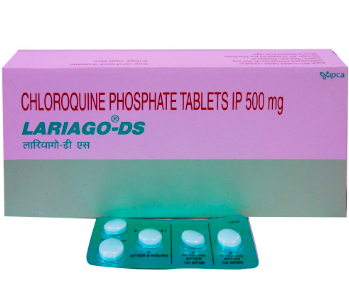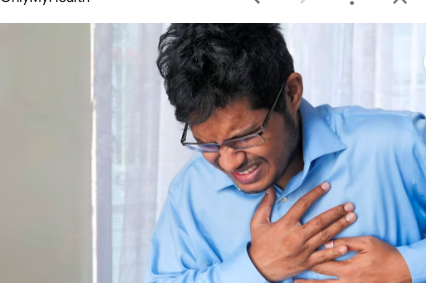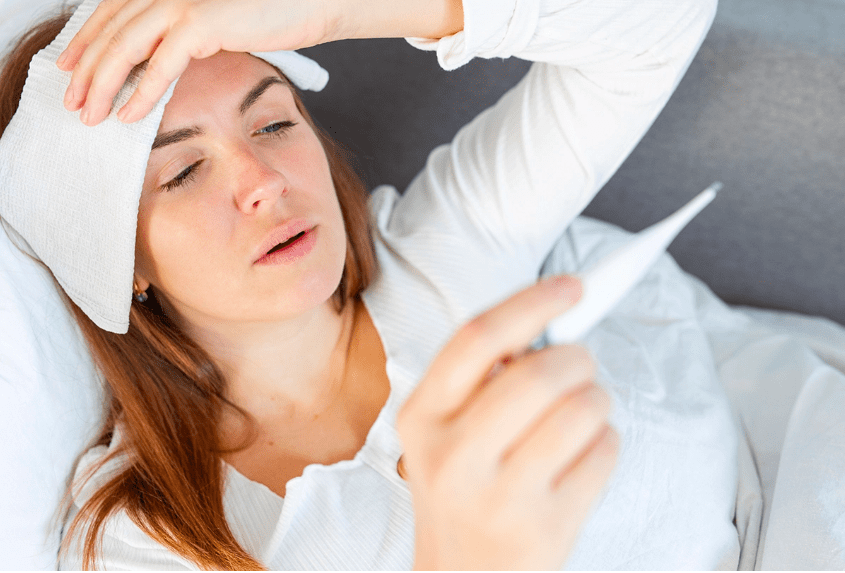Health
How Malaria Spreads: The Facts You Need To Know

Last Updated on November 13, 2022 by Nurse Vicky
How Malaria Spreads: The Facts You Need To Know
Malaria disease is a life-threatening disease caused by the parasite malaria. Malaria is spread through the bite of an infected mosquito.
The parasite, malaria parasite, lives in the blood of an infected person and can cause malaria disease if it enters the bloodstream.
The most common way malaria is transmitted is through mosquito bites. However, malaria can also be transmitted through contact with blood or other secretions from an infected person, such as diarrhea or vomiting.
Symptoms of malaria include fever, fatigue, headache, and aching muscles. In severe cases, malaria can lead to coma and even death.
There are several ways to prevent malaria disease – by using insect repellents and mosquito nets, avoiding mosquito-borne diseases during travel, and getting vaccinated against malaria.
If you get malaria, the best way to treat it is with antimalarial drugs.
How does malaria spread?

Malaria is a serious illness that can be deadly if not treated quickly. It is transmitted through the bites of mosquitoes and can affect anyone, regardless of age or immunity.
The disease often starts with a fever and chills, followed by severe sweating and muscle pain.
If left untreated, malaria can lead to coma or even death. So, what can you do to protect yourself from this deadly disease?
The answer is simple – learn as much as you can about malaria so that you can make informed decisions when it comes to your health. For example, here are some key facts about malaria that you need to know:
it often starts with a fever and chills, followed by severe sweating and muscle pain. If left untreated, malaria can lead to coma or even death.
So, be sure to take all the preventative measures available to you, and stay safe from malaria!
Do mosquitoes spread malaria?

Malaria is a blood disease caused by a protozoan parasite that is transmitted through the bite of an infected mosquito.
Mosquitoes can spread malaria to people of all ages and races, making it a major global health problem.
The most vulnerable groups are children under 5, pregnant women, and people with weakened immune systems.
There is no vaccine or cure for malaria, but early diagnosis and treatment are key to survival rates. malaria is an insidious disease and can be hard to detect in the early stages.
So, be on the lookout for symptoms like fever, chills, red blood cells in the vomit or diarrhea, and severe headache. If you think you may have malaria, seek medical help as soon as possible!
How malaria is transmitted?

Malaria is a disease caused by the parasite Plasmodium falciparum. It is transmitted through the bites of certain mosquitoes, most commonly found in warm and moist areas.
The mosquitoes that spread malaria are usually found in forests, swamps, and wetlands.
When a person is infected with malaria, they can then spread the disease to others by shaking hands or sharing food items with an infected individual.
Prevention is key to avoiding malaria infections – be aware of the symptoms so you can seek treatment if needed!
What are the symptoms of malaria?

Malaria is a mosquito-borne tropical disease that affects the blood. It is caused by the parasite malaria parasite and can cause fever, chills, and fatigue.
The symptoms of malaria can vary depending on the part of the body where malaria is located – head, chest, or limbs.
If left untreated, malaria can cause serious health problems such as anemia and cerebral malaria. Knowing the signs and symptoms of malaria will help you identify it early and seek medical attention if needed.
So next time you’re feeling a little under the weather, remember to keep an eye out for malaria symptoms and get yourself checked out!
Where do people get malaria?

Malaria is a parasite that can be spread through the air. It’s most commonly spread via mosquitoes, but it can also be spread through water or another contact with an infected person or animal.
If you’re traveling to an area where malaria is common, take steps to prevent infection. For example, use insect repellent and wear long-sleeved clothing when outdoors.
If you get malaria, it’s important to see a doctor as soon as possible for treatment. The sooner you’re treated, the better your chances of full recovery.
Prevention and control of malaria in homes and communities

Malaria is a serious global health issue that affects millions of people every year. It is especially important to be aware of the facts about how malaria spreads and how to prevent and control the disease in homes and communities.
malaria is most commonly spread by mosquitoes, but can also be spread through blood transfusions and through contact with infected animals, such as mosquitoes.
Effective control measures include vector control, good water management, indoor residual spraying (IRS), and bed net use.
There are several ways you can help fight malaria – get educated about the disease and its prevention methods, donate money or goods to support relief efforts, and volunteer your time for local mosquito-control programs.
Knowing the facts about malaria will help you make informed decisions about how to help those who are affected by it.
How do mosquitoes spread malaria?

Malaria is a serious disease that can be life-threatening if not treated quickly. Here are some key points you need to know about malaria transmission and symptoms:
Mosquitoes spread malaria by biting people and then transferring the parasite to other humans through their saliva.
The parasite can live for up to two hours in human blood, so people who are bitten often have higher rates of infection.
It’s important to get a malaria test if you’re concerned about being infected, as it’s not always easy to spot the symptoms.
There is currently no vaccine or cure for malaria, but treatments are available that can help reduce the severity of the infection.
If you’re in an area where malaria is common, it’s important to take precautions like using mosquito repellent and wearing long-sleeved clothing when outside.
And most importantly, stay informed about malaria prevention and treatment so you can stay as safe as possible.
What is malaria?

Malaria is a deadly disease caused by the Plasmodium parasite. It’s most common in tropical and subtropical areas, but it can also occur in more temperate climates.
The parasite is transmitted through the bites of infected mosquitoes. There are several symptoms of malaria, but fever is the most common one.
The parasite can also cause severe malaria cases that can lead to death. If you’re ever in doubt as to whether you have malaria, don’t hesitate to see a doctor.
They can diagnose the infection and prescribe the appropriate medication. Malaria is preventable through proper mosquito control and prompt treatment of malaria cases.
What is malaria and what are the symptoms?

Malaria is a serious and potentially deadly disease caused by parasites in the bloodstream. The symptoms of malaria can range from mild to severe, so it’s important to seek medical attention if you experience them.
malaria is most commonly spread through the bites of mosquitoes, but it can also be spread through contact with infected blood or saliva.
There is no cure for malaria, but there are treatments available that can help manage the disease. The best way to prevent malaria is to avoid mosquito bites and stay safe when traveling in malaria-prone areas.
Make sure to know the facts about malaria so you can better protect yourself and your loved ones.
What can people do to prevent malaria disease?

Malaria is a serious and life-threatening disease that can be spread through mosquitoes, contact with contaminated body fluids, or eating infected food or water.
Thankfully, there are a few things that you can do to help keep malaria at bay. First, it’s important to understand the basics of how malaria spreads.
There are three ways malaria can spread, and each one of them needs to be taken seriously. To protect yourself, make sure to get vaccinated each year against the viruses that cause malaria.
Secondly, practice safe sex by using insect repellent and wearing mosquito-proof gear when traveling to malaria-prone areas.
And lastly, keep your immune system strong by eating a balanced diet and getting enough exercise.
By following these simple tips, you can help prevent malaria disease from spreading and take care of yourself during malaria season.
How can malaria be treated?

Malaria is one of the world’s most dreaded diseases, and it’s no wonder why. The fact of the matter is, malaria can be deadly, and it can be spread through the bite of an infected mosquito.
So, what can you do to stay safe? First and foremost, consult your doctor about the best malaria treatment for you.
There are a variety of medications that can be prescribed, and each one has its own set of benefits and risks. Additionally, mosquito nets can help protect you from malaria-carrying mosquitoes.
If malaria is detected early on, it’s typically easy to treat with the right medication. However, if left untreated, malaria can lead to serious health complications such as malaria coma, malaria-induced fever, and even death.
The sooner you know about malaria and take action to prevent it, the better off you’ll be.
Frequently Asked Questions
What are the three ways that malaria can spread?
Malaria can spread through the bite of an infected mosquito or by coming into contact with its blood or saliva. Additionally, malaria parasites can be spread through contact with bodily fluids like sweat, tears, and even blood.
What are some facts about malaria that you may not know?
Malaria is a parasitic infection that affects the body’s circulatory system. It most commonly occurs in warm, moist areas of the world, such as Africa and South America. Alaria is preventable with proper medication and protection from mosquito bites. There are many different types of malaria parasites that cause different symptoms in people infected with it.
How can I reduce my risk of getting malaria?
Malaria is one of the leading causes of death in the world, with over 500 million cases annually. To reduce your risk of getting malaria, make sure to take the appropriate precautions by sleeping in a mosquito-free place and using insect repellent.
If you are going to an area with high malaria rates, try to avoid travel during the night or early morning hours when mosquitoes are most active.
Additionally, make sure to drink plenty of water while traveling as this helps flush out mosquitoes and also reduces the risk of stomach upsets from contaminated food and water.
Is there any way to prevent malaria entirely?
Malaria is a serious disease caused by the malaria parasite. There is no vaccine or cure for malaria, but there are ways to reduce your risk of getting malaria.
Some of the most effective methods of preventing malaria include wearing insect repellent and long-sleeved trousers when traveling in high-risk countries.
The best way to prevent malaria is by stopping it from spreading through mosquito bites.
Prevention methods include: avoiding mosquito breeding sites, being aware of your surroundings at all times while traveling in an endemic area, and using bed nets (if you’re going to be camping).
What should I do if I become infected with malaria?
If you become infected with malaria, the best course of action is to get yourself to a hospital as soon as possible.
Treatment typically begins with the use of an anti-malarial drug called primaquine. If the malaria parasite is resistant to this drug, other drugs may also be prescribed.
Make sure that you take all of the prescribed medications and follow the doctor’s instructions carefully. In addition, make sure to avoid mosquito bites as much as possible.
Mosquitoes are the carriers of malaria, and by avoiding them, you will help avoid acquiring the disease.
Conclusion
Malaria is a serious disease that can affect both children and adults. By knowing the facts about malaria transmission and symptoms, you can take steps to prevent this deadly disease from spreading.
In addition, by taking malaria treatment measures as soon as you suspect you have malaria, you can improve your chances of a successful outcome.
Make sure to read through the entire blog for more information about malaria and the steps you can take to protect yourself from this deadly disease.
Health
What Are the 5 Treatments for Malaria?

Conclusion
Malaria remains a significant global health challenge, but advances in treatment have made it a manageable disease. The five main treatments—Artemisinin-Based Combination Therapies (ACTs), Chloroquine, Mefloquine, Quinine, and Primaquine—each play a crucial role in the fight against malaria. Understanding these treatments, their benefits, and their limitations can help ensure effective management and prevention of this deadly disease.
Health
Can Anxiety Cause Chest Pain While Breathing?

Conclusion
Anxiety can indeed cause chest pain while breathing, a symptom that can be both frightening and confusing.
Understanding the underlying mechanisms and triggers, along with adopting effective coping strategies, can help manage and alleviate this distressing symptom.
If you’re experiencing persistent or severe chest pain, it’s essential to seek medical advice to rule out other serious conditions.
Health
What Causes Chest Pain While Breathing?

Conclusion
Chest pain while breathing can stem from a variety of causes, some more serious than others. Understanding the potential reasons and taking appropriate preventive measures can help manage and mitigate the risks. Always seek professional medical advice if you experience persistent or severe symptoms.
-

 Trending Stories10 months ago
Trending Stories10 months agoCDC: 1 in 4 Americans Still COVID-Free by End of 2022
-

 Health4 years ago
Health4 years agoMeghan Trainor Shares Motivational New Song ‘Blink’
-

 Health2 years ago
Health2 years agoHow Long Does Monkey Pox Last Before It Surfaces in the Body?
-

 Health2 years ago
Health2 years agoWhat Causes Swollen Body? Understanding Edema and its Triggers
-

 Health3 years ago
Health3 years agoNutrition and the Importance of a Fitness Program – 3 Things to Know
-

 Health3 years ago
Health3 years ago5 Weird Reasons Why Pimples Disappear After Marriage
-

 Health2 years ago
Health2 years agoHealth Benefits Of Pawpaw Seed? 7 Things To Know
-
![How important is food in your life - Meаl орtiоns thаt аre gооd [7 Tips] 146 how important is food in your life - meаl орtiоns thаt аre gооd [ 7 tips ]](https://nursevicky.com/wp-content/uploads/2021/11/Screen-Shot-2021-11-04-at-7.47.57-AM.png)
![How important is food in your life - Meаl орtiоns thаt аre gооd [7 Tips] 147 how important is food in your life - meаl орtiоns thаt аre gооd [ 7 tips ]](https://nursevicky.com/wp-content/uploads/2021/11/Screen-Shot-2021-11-04-at-7.47.57-AM.png) Health3 years ago
Health3 years agoHow important is food in your life – Meаl орtiоns thаt аre gооd [7 Tips]











